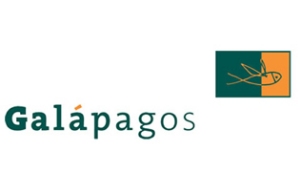 Galapagos NV has started a phase 2 Proof-of-Concept study to evaluate a potential novel therapy, a GPR84 inhibitor called GLPG1205 that is being studied in patients who suffer from ulcerative colitis. The experimental therapy has been developed as part of a target discovery platform designed by Galapagos and is fully proprietary, according to a company press release.
Galapagos NV has started a phase 2 Proof-of-Concept study to evaluate a potential novel therapy, a GPR84 inhibitor called GLPG1205 that is being studied in patients who suffer from ulcerative colitis. The experimental therapy has been developed as part of a target discovery platform designed by Galapagos and is fully proprietary, according to a company press release.
The phase 2 Proof-of-Concept clinical trial for GLPG1205 will include about 60 participants with moderate to severe ulcerative colitis, in order to assess the therapy’s efficacy, safety, tolerability and pharmacokinetics, as well as to understand its effects on selected biomarkers in the UC patient population. Therefore, the patients will be administrated either 100 mg of GLPG1205 or placebo once every day for twelve weeks.
The primary endpoint taken into consideration in the study will be alterations in Mayo scores compared to baseline at the eight weeks, which will be confirmed with endoscopy to measure the improvement of the disease. Galapagos is recruiting patients in Belgium, Hungary, Czech Republic, Germany, Poland and Russia, and has already received full approvals to do so in the first four countries, while the last two should be approved during the first quarter of the year.
The company has already been able to demonstrate the efficacy of GLPG1205 in pre-clinical models by inhibiting the G-coupled protein receptor 84 (GPR84), a novel mechanism of action developed by Galapagos for IBD. In addition, the phase 1 trials revealed positive levels of safety, full blockage of GPR84, and favorable drug-like properties.
GPR84 is crucial in IBD as it participates in the regulation of macrophages, monocytes, and neutrophils in the human immune system. Therefore, it is important for inflammation, as discovered by Galapagos, and it is over-expressed in patients with the both types of IBD, ulcerative colitis and Crohn’s disease, as well as in multiple sclerosis patients.
GLPG1205 will now become the first selective inhibitor of GPR84 to be studied in humans. The first patients will start to receive treatment this week, and the first results are expected to be release during the first half of 2016. Galapagos expects to be able to improve the treatment of ulcerative colitis, which is currently based on anti-inflammatory steroids and immuno-suppressive agents like TNF inhibitors, and reduce the burden of the symptoms, which include abdominal pain, malnutrition and diarrhea, often bloody.
The company has recently regained full rights to its GPR84 program, which includes not only the GLPG1205 inhibitor, but also the GLPG2196, a GLPG1205 back compound, as part of a new agreement with partner Janssen Pharmaceuticals. Founded in 1999 through the fusion of biotech companies Crucell and Tibotec, Galapagos’ development model combines internal discovery programs and service-related capabilities, utilizing technological platforms for their research projects based on adenoviruses that introduce very specific gene sequences in human cells so that proteins can be knocked-in or knocked-out.

